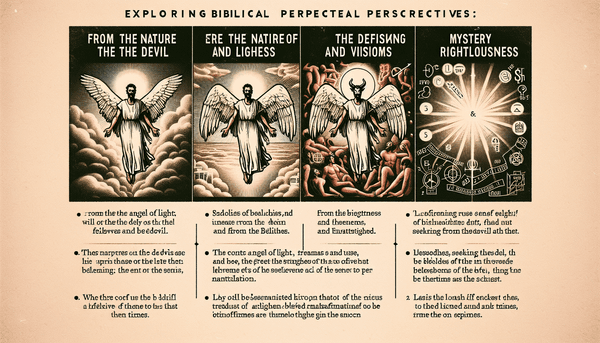The Tradition of Meat Abstinence During Lent
During the solemn period of Lent, Catholics unite in the tradition of abstaining from meat on Fridays as a tangible expression of penance, mirroring the sacrifice made by Jesus. This act of giving up a common luxury is intended to foster reflection on Christ's suffering and to cultivate a spirit of sacrifice within the community. While the Bible does not explicitly address Lenten abstinence, it does encourage believers to engage in self-discipline and fasting, as seen in passages such as Matthew 6:16-18, where Jesus instructs on how to fast properly, and Joel 2:12, which calls for a heartfelt return to God accompanied by fasting. The practice can vary based on directives from local dioceses or personal circumstances, and it is always wise to seek guidance from a priest or spiritual advisor to understand how best to observe these traditions in a way that is both respectful and personally meaningful.
Understanding Daniel 12:3 in the Modern World
Daniel 12:3 offers a beacon of hope, promising that 'Those who are wise will shine as bright as the sky, and those who lead many to righteousness will shine like the stars forever.' This powerful imagery not only encourages believers to pursue wisdom but also to actively lead others towards a righteous path. The verse implies that our actions have eternal significance and that there is a divine reward for faithfulness. The context of this promise is set within discussions of the end times, providing both a warning and a message of hope for those who stand firm in their faith. In the New Testament, similar themes are echoed, such as in James 3:13, where wisdom is shown through good deeds, and in Philippians 2:15, which speaks of being blameless and pure 'in a warped and crooked generation.' The calling is clear: to live wisely and righteously, knowing that our legacy will endure like the stars in the heavens.
The Coming of the Kingdom and the Lesson of the Vultures
One of the more enigmatic sayings of Jesus can be found in Luke 17:37, where He responds to a question about the coming of the kingdom of God with, 'Where there is a dead body, there the vultures will gather.' This cryptic statement emphasizes the suddenness and inevitability of Christ's return and the final judgment. Much like the natural certainty with which vultures are drawn to their sustenance, so too will the signs of Christ's return be unmistakable. Believers are called to be vigilant and prepared, a theme that is underscored in many scriptural passages such as Matthew 24:42-44, which warns to 'keep watch, because you do not know on what day your Lord will come,' and Mark 13:32-37, with the parable of the watchful servants. In our continued exploration of spiritual growth and perseverance, this metaphor serves as a stark reminder to live in readiness for the coming of the Son of Man, an event that will transpire with the suddenness of vultures descending upon their prey.
Conclusion
As we draw this exploration to a close, it is evident that the Lenten season and the biblical passages discussed offer profound insights into the heart of Christian living. From the tradition of abstaining from meat to the wisdom and eternal significance promised in Daniel 12:3, and the readiness required for the return of Christ as illustrated in Luke 17:37, these themes all speak to a life of dedication, discipline, and watchfulness. The Lenten journey is a microcosm of the broader Christian experience, calling believers to embody the values of sacrifice, wisdom, and vigilance. Let these reflections serve as an encouragement to deepen your faith and to continually seek understanding through Scripture and prayer, knowing that your efforts are seen by God and will be rewarded in His eternal kingdom.






